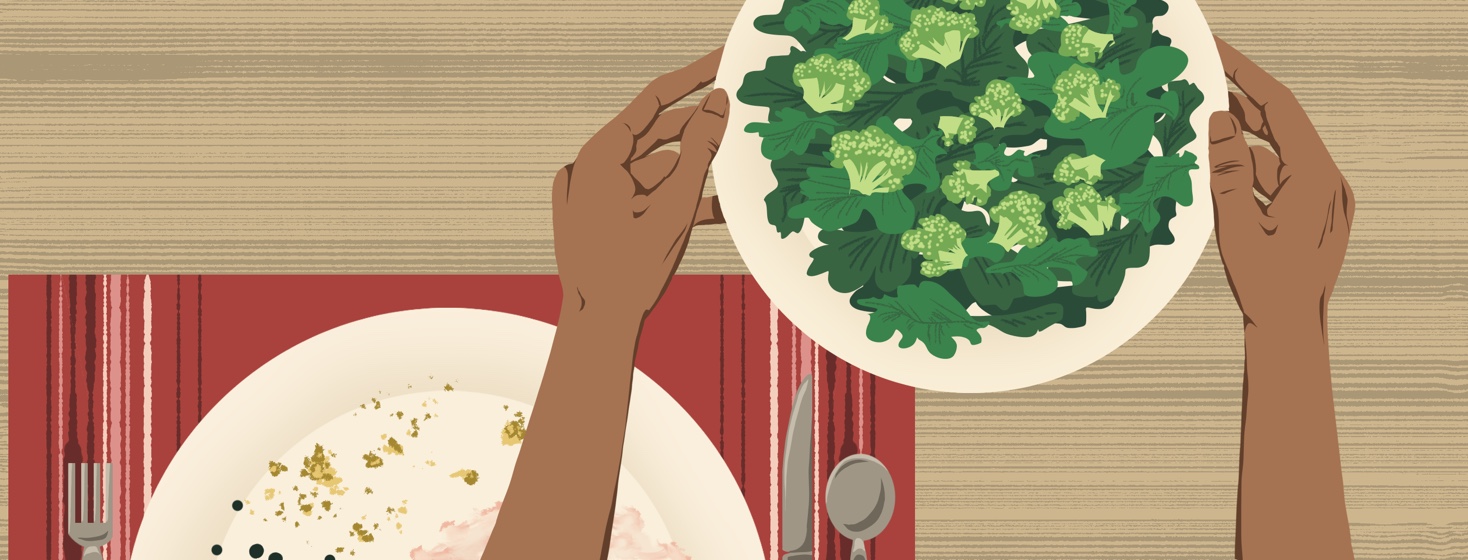Eating Green While Managing Your IBS
I have been (mostly) vegetarian for over 25 years now, ever since I was a sophomore in high school. When I began having IBS symptoms mid-way through college, many of the doctors I saw praised me for being vegetarian – though, honestly, I wasn't a very healthy one at the time (I ate a lot of pizza and potato chips). However, I had started eating a lot of salad recently and despite what the doctors told me about how all that fiber and roughage would help my IBS, it seemed to instigate it most of the time.
Over the next few years, I struggled as I tried to be a healthy vegetarian and eat and enjoy my greens even as they flared my symptoms. What balance could I strike?
Soluble vs. insoluble fiber for IBS diet
Luckily, I eventually came across a website in my early twenties that discussed the difference between soluble and insoluble fiber. Insoluble fibers usually were related to raw green and cruciferous vegetables, as well as grains like rye and wheat (another struggle I had was what kind of bread/grain products I could eat and why since "whole wheat" is often touted as the healthier option, yet always made me sick).
Soluble fibers often could be found in more refined bread products (white or sourdough bread and pasta), rice, and cooked root vegetables like potatoes, beets, and squash. But I still loved my salads and some raw greens and didn't know how to keep them as a staple while also keeping my IBS under control.
Tricks for eating green
But then I learned a trick (off the same site that helped me figure out the difference between soluble vs. insoluble fiber). It wasn't about giving up all insoluble fiber, but to make sure there was a balanced ratio of soluble-to-insoluble fiber with each meal. In other words, I didn't stop eating salad, but I stopped eating it by itself as a stand-alone meal, and I stopped eating such large portions in a single serving.
I sometimes would also relegate salad till after the more soluble fiber-heavy portion of a given meal. For instance, I still often eat a salad with dinner, but unless I am eating out, I tend to eat the salad after the entree instead of before. I also eat a small(ish) salad (which is easier after an entree because I am fuller). The entree will usually be generous in soluble fiber and low-FODMAP, so it will serve as a buffer in my gut for the insoluble fiber in the salad. And of course, I go light on the dressing and opt for low or nonfat dressing types, since fat is an IBS trigger. If I am somewhere (say a restaurant) where the salad is served first, I often try to make sure I am having something with soluble fiber with it even if it's just some white bread (other times I may order a side of white rice or say a cup squash soup).
What about broccoli?
Cruciferous vegetables like broccoli are notorious for causing gas and digestive upset. While I don't really eat Brussels sprouts, cauliflower or cabbage (other types of cruciferous vegetables), I do love broccoli. For the most part, it doesn't bother my IBS even though I often see it listed as high FODMAP.
Recently, I investigated a little further and found it's the stalks and not the florets of the broccoli that are high FODMAP. The florets are in fact relatively low FODMAP. I find there are other caveats with certain fruits and vegetables about what parts of them and under what conditions (such as cooked vs. raw) that can make them vary in their FODMAP content. So, always look into that if there is a vegetable you want in your diet.
How about you? How do you keep your diet "green" and healthy despite your IBS? Please feel free to share your experiences in the comments below.

Join the conversation